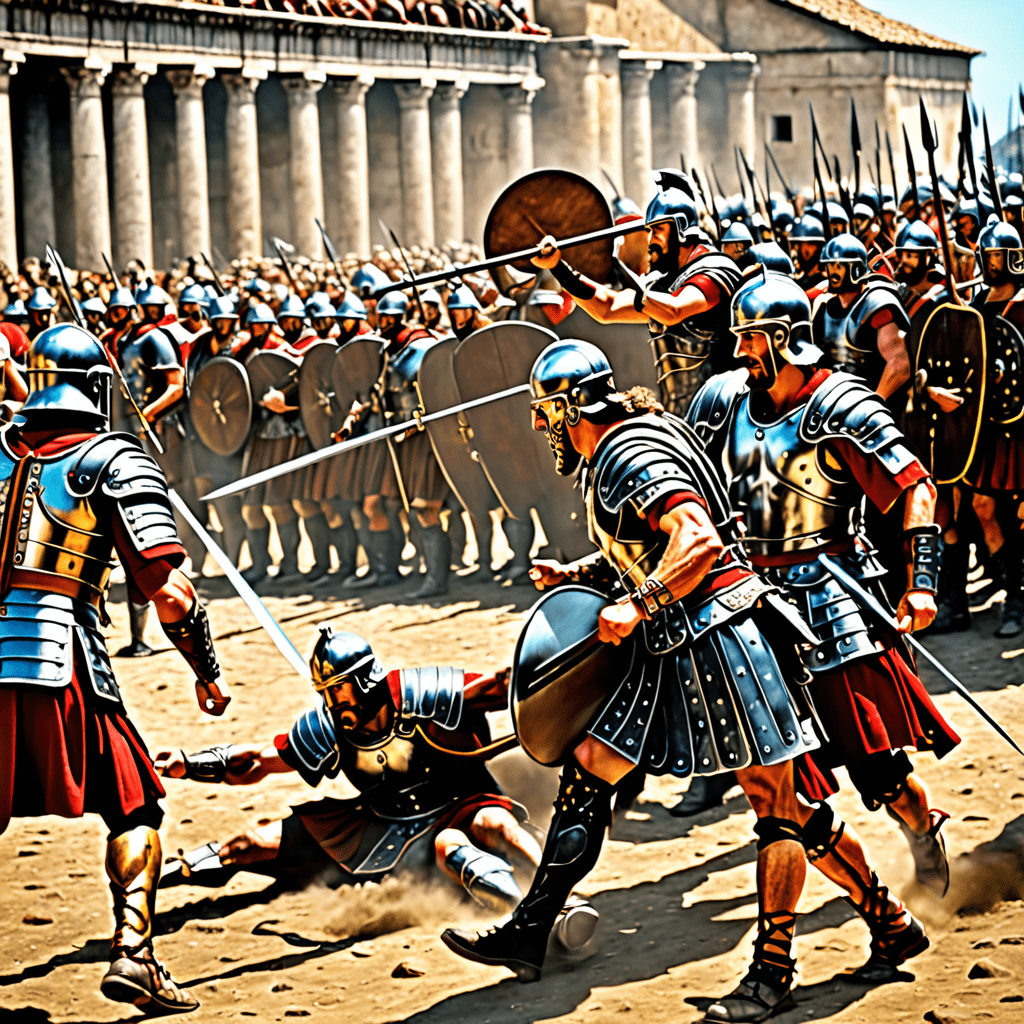The Mythological Origins of Roman Military Tactics and Strategies
Introduction to Roman Military Tactics
For centuries, the Roman Empire stood as a beacon of military might and strategic prowess. Behind the success of the Roman legions lay a rich tapestry of mythological inspiration that influenced their military tactics and strategies.
The Influences of Mars, the God of War
Central to Roman military culture was their reverence for Mars, the god of war in Roman mythology. Mars embodied not only the physical aspects of conflict but also strategic thinking and discipline. Romans believed that invoking Mars’ favor would lead them to victory on the battlefield. This belief manifested in the meticulous planning and execution of military campaigns, with an emphasis on adaptability and discipline derived from the god of war.
The Resilience of Achilles and the Phalanx Formation
One of the most enduring mythological influences on Roman military tactics was the legend of Achilles, the hero of the Trojan War. The notion of invincibility and single combat prowess embodied by Achilles inspired the Roman legions to adopt the phalanx formation. Like the Greek warrior, Roman soldiers formed an impenetrable wall of shields and spears, showcasing not just individual strength but collective resilience in the face of enemy attacks.
The Wisdom of Athena and Defensive Strategies
In Roman mythology, Athena, the goddess of wisdom and strategic warfare, held a significant place. Romans drew inspiration from Athena’s tactical acumen and defensive prowess, reflecting in their military strategies. Just as Athena defended her city of Athens, Roman military leaders prioritized fortifications and defensive maneuvers to protect their territories. This strategic approach, rooted in mythological wisdom, helped the Roman legions withstand sieges and outmaneuver enemy forces.
As we delve into the mythological origins of Roman military tactics and strategies, we uncover a fascinating interplay between ancient legends and battlefield innovations. The reverence for gods like Mars and Athena, alongside heroes like Achilles, shaped the very core of Roman military doctrine, propelling the empire to unprecedented heights of conquest and dominance.

FAQ: Mythological Origins of Roman Military Tactics and Strategies
What role did mythology play in shaping Roman military tactics?
Mythology held significant influence over Roman military strategies. For example, the story of the founding of Rome by Romulus and Remus, raised by a she-wolf, emphasized the importance of adaptability and cunning in battle, traits reflected in Roman warfare tactics.
How did Roman myths inspire leadership and bravery in the military?
Myths of gods and goddesses like Mars, the god of war, instilled a sense of divine protection and martial prowess among Roman soldiers. Leaders often sought to emulate virtues displayed by mythical figures like Hercules or Minerva, promoting courage and tactical brilliance.
Were there specific myths or legends that directly impacted Roman battle formations?
Yes, the legend of the Trojan War and the strategic insights of Odysseus were believed to have influenced the Roman phalanx formation and maneuvering in battle. The mythological tales of heroism and cunning were integrated into military training to enhance cohesion and strategic acumen.
How did Roman commanders incorporate mythological symbolism into their military campaigns?
Roman commanders often used symbols and standards associated with gods or legendary figures to rally troops and convey a sense of divine favor. These symbols served not only as banners of unity but also inspired a sense of duty and allegiance among soldiers on the battlefield.



